Anthropology
-
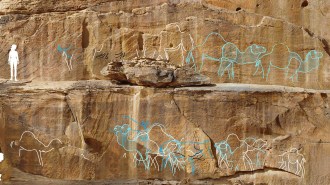 Archaeology
Archaeology12,000-year-old rock art hints at the Arabian Desert’s lush past
Newly found engravings of animals on rock outcrops in Saudi Arabia’s Nefud desert show nomads lived there thousands of years ago.
By Tom Metcalfe -
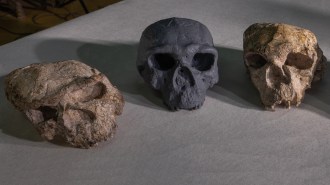 Anthropology
AnthropologyAn ancient Chinese skull might change how we see our human roots
Digital reconstruction of a partially crushed skull suggests new insight into Homo sapiens’ evolutionary relationship to Denisovans and Neandertals.
By Bruce Bower -
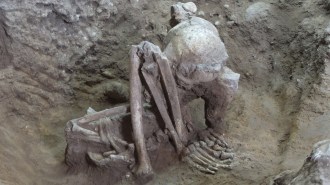 Anthropology
AnthropologyThe oldest known mummies have been found — in Southeast Asia
Southeast Asian groups mummified bodies over smoky fires before burying them as early as 12,000 years ago, long before Egyptians began making mummies.
By Bruce Bower -
 Anthropology
AnthropologyA 104-centimeter-long hair could rewrite recordkeeping in Inca society
Analysis of the hair used in a knotted device reveals the owner’s simple diet. That suggests commoners, not just the elite, kept records in Inca society.
-
 Animals
AnimalsGreenland sled dog DNA is a window into the Arctic’s archaeological past
A genomic analysis of Greenland’s Qimmeq dogs suggest they and their human partners arrived on the island centuries earlier than previously thought.
By Jake Buehler -
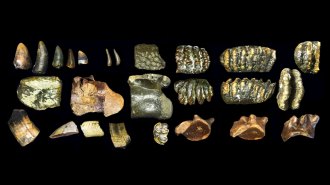 Anthropology
AnthropologyA drowned landscape held clues to the lives of ancient human relatives
The remains of extinct Homo erectus dredged from the seabed off Java, along with thousands of animal fossils, are revealing a long-lost ecosystem.
-
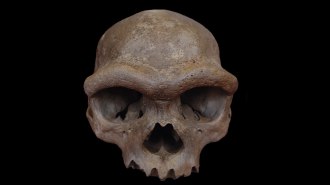 Anthropology
Anthropology‘Dragon Man’ skull may be the first from an enigmatic human cousin
Ancient proteins and DNA may peg a 146,000-year-old Chinese skull as the most complete fossil to date from Denisovans, a puzzling line of Asian hominids.
By Bruce Bower -
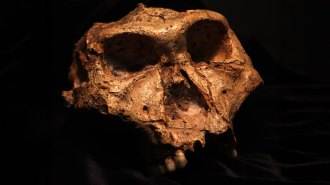 Anthropology
AnthropologyMales of this ancient human cousin weren’t always bigger than females
Molecular evidence from a 2-million-year-old southern African hominid species indicates sex and genetic differences in P. robustus.
By Bruce Bower -
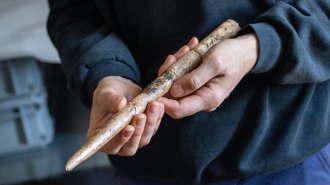 Anthropology
AnthropologyHumans used whale bones to make tools 20,000 years ago
Ancient scavengers of the beached beasts turned their bones into implements that spread across a large area, researchers say.
By Bruce Bower -
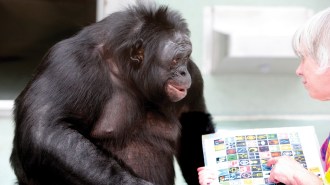 Animals
AnimalsA ‘talking’ ape’s death signals the end of an era
Kanzi showed apes have the capacity for language, but in recent years scientists have questioned the ethics of ape experiments.
By Erin Wayman -
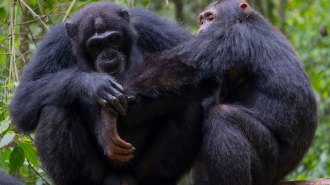 Animals
AnimalsWild chimpanzees give first aid to each other
A study in Uganda shows how often chimps use medicinal plants and other forms of health care — and what that says about the roots of human medicine.
-
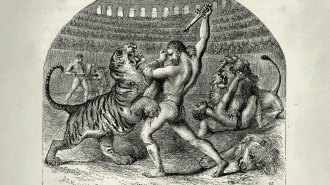 Anthropology
AnthropologyA lion’s bite marks a fatal fight with a possible Roman-era gladiator
The first skeletal evidence of a gladiator show or execution involving an exotic animal comes from a Roman British man with bite marks from a lion.
By Bruce Bower